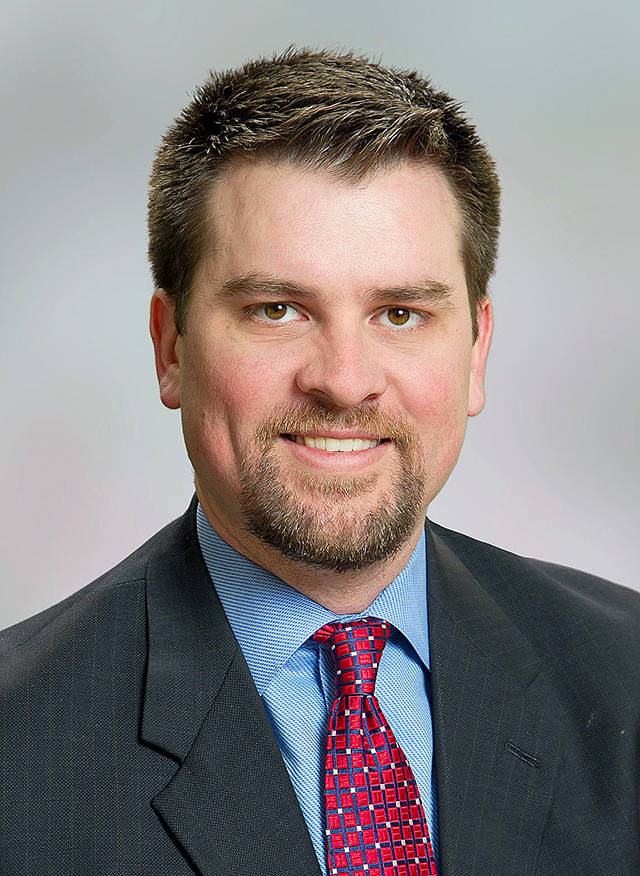EVERETT — Judge Anthony Howard wants to start a community court in Snohomish County focused not so much on convicting people, but instead connecting them to services before they go on to commit more serious crimes.
By addressing issues such as substance abuse, mental health, employment and housing, community courts across the nation have reported a reduction in the number of repeat offenders and the number of people going to jail.
Since the first community court opened its doors in New York City in 1993, dozens have sprouted in the U.S. and beyond, including two in Washington state, in Olympia and Spokane.
Each one differs in scale and approach. The court in Snohomish County would handle what Howard refers to as “quality of life crimes,” or low-level nonviolent offenses like criminal trespassing, vehicle prowling and disorderly conduct.
They’re the types of crimes that aren’t regularly prosecuted in Snohomish County, due to caseload and budget constraints, said Howard, who presides as an Everett District Court judge. And the perpetrators are people who may need help more than they need jail time, he said. Oftentimes, they commit crimes out of desperation, or as a result of their mental illness or drug addiction, he said, not out of evil intent.
At daily bail hearings, Howard sees firsthand how the same people cycle through the criminal justice system, never seeming to get better or “learning lessons.” Instead, they come back over and over again, for a variety of allegations, until, eventually, they do something worse and get sentenced to time in prison.
“We want to reach the people before they become felons,” Howard said.
That’s not happening in the traditional court system, he said. For these low-level offenses, it takes on average 1¾ years from the day the crime is committed to the day the defendant enters a guilty plea.
“They’re serving a life sentence; they’re just doing it a few days at a time,” Howard said. “We’re not doing what we need to do to stop the cycle.”
During that time, there are no pre-trial services or probation officers for defendants. And judges can’t order people who aren’t convicted of crimes to complete treatment programs.
As a result, when people are told to start treatment, compliance is very low, Howard said. After defendants leave the courtroom, he said, they have a difficult time figuring out who to call and how to make an appointment, gather all the necessary documents and show up on time.
“We’re not giving reasonable expectations if we just say, ‘go do it,’ and expect them to do it, with no help,” Howard said
Community court can offer a different kind of carrot and stick than the traditional system, Howard said. Those who enter the program can have their charges dismissed within half a year — if they show up once a week and complete the requirements.
A judge may require defendants to enter a substance abuse program or mental health treatment, get a driver’s license, find a job or complete community service. Service providers will be in the same room as lawyers and judges to help assess the defendants and connect them to the necessary programs.
It’s a similar approach to the drug and mental health courts. Community court, however, won’t take felonies like drug court, and it won’t handle the severe illnesses found in mental health court, Howard said.
But then there’s the stick: To participate in the program, defendants will have to waive their rights to a jury trial. If they don’t comply with the requirements, or miss court dates, the judge will have full discretion over whether to convict them and send them to jail.
Kathleen Kyle, managing director of the Snohomish County Public Defender Association, said she’s supportive of community court, but expressed worry that it would act as an avenue to criminalize people who aren’t currently being prosecuted in the county.
In an email, she wrote that she also was concerned that the requirement to waive the right to a jury trial would reduce the number of people willing to participate.
Howard said he sees community court as an extension of other programs already underway in Snohomish County, like the sheriff office’s embedded social workers, who join deputies to talk to and help people who are homeless. Howard said he expects many of community court’s referrals to come from the embedded social worker program.
Snohomish County’s community court is still in the beginning stages of planning. The county expects to complete a community needs assessment by September, which will help determine the court’s structure, approach and cost.
People can give their input through a 25-question survey at snohomishcountywa.gov/5449/Community-Court.
If all goes as planned and funding is found, the court will open in February. Likely, the program will be housed in the Carnegie Resource Center, the county’s social services hub.
Zachariah Bryan: 425-339-3431; zbryan@heraldnet.com. Twitter: @zachariahtb.
Talk to us
> Give us your news tips.
> Send us a letter to the editor.
> More Herald contact information.

























